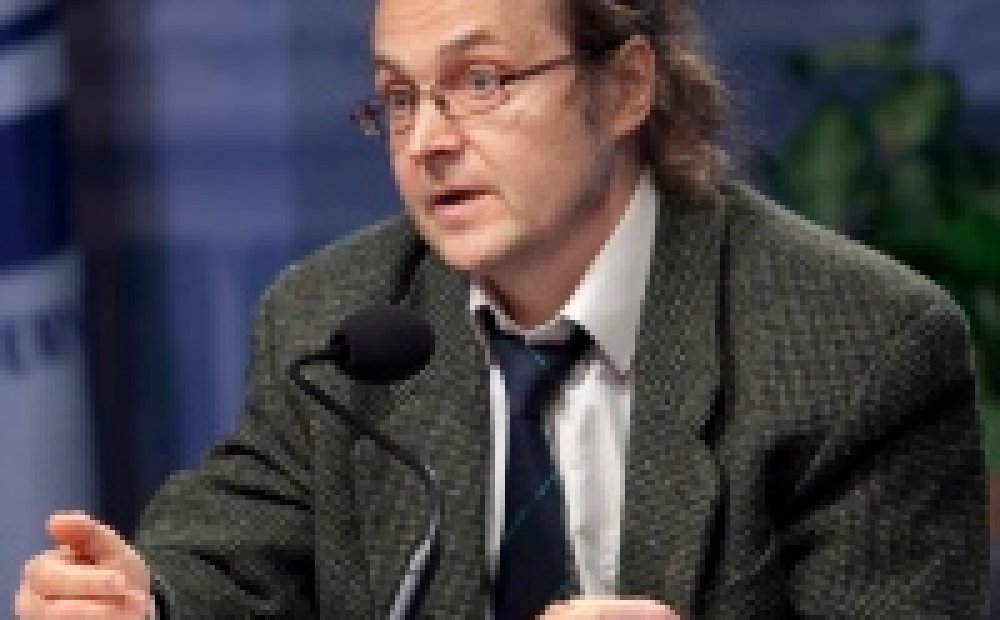Immigration and Social Power: The Russian Case

“I was astonished by the gap between how much [Russia] has changed under the influence of migration in terms of economic interactions, everyday life, and ethnic structure of population, and how little this change has been reflected in the public discourse,” stated Vladimir Malakhov, Leading Research Fellow, Department of Social and Political Philosophy, Institute of Philosophy, Russian Academy of Sciences, Moscow, Russia, and Fulbright-Kennan Scholar, Kennan Institute, at a 1 June 2011 Kennan Institute event. “On the one hand,” the speaker continued, “you have a country in the center of the second largest migration system in the world, after the United States, and on the other hand, you have a public debate which is stubbornly reluctant to acknowledge that this transformation has happened and that it is inevitable.”
Malakhov examined the case of immigration in Russia through the lens of “social power,” the concept coined by Michael Mann, particularly in terms of why those in power do not wish to see Russia more diverse than it currently is. Malakhov appealed to the concept of social power, which he broke down into four categories: economic, political, administrative and symbolic, and applied that analysis to illustrate this approach to fully comprehend how different forms of power are involved in the immigration debate.
Malakhov presented five reasons as to why the Russian case of immigration is unique. First, the speaker argued that Russia has extremely unreliable official data on migrant affairs, resulting in a deficiency of empirical evidence. Second, Malakhov emphasized that as the majority of immigrants come from former Soviet Union states, they are socialized in the same institutions as the receiving populations. Culturally speaking, while their respective ethnicities remain quite different, many of the populations are very similar. But in Malakhov’s opinion, this commonality is a two-edged sword: “this common ground of socialization makes the adaptation to new social environments easier, yet creates an illusion on the part of bureaucracy that the integration of migrants is not an issue,” he noted. Third, a remnant of the Soviet legacy in Russia remains the xenophobia towards citizens of non-Russian ethnic origin who—after having moved into the central region of Russia—are perceived as immigrants, which has resulted in absurd demands for their deportation.
The fourth characteristic Malakhov cited was the undemocratic political regime shaped in Russia under Vladimir Putin, which seeks to base its legitimacy on popular will and support. “[Putin’s regime] faces a dilemma,” asserted Malakhov, “because in order to appeal to public opinion, you must be restrictive on immigration policy, but to boost the economy and further develop the country, you must liberalize the policy, putting popularity at risk.” The fifth and final characteristic was the country’s “gray economy,” as well as its rampant corruption, which both allow many businesses and entrepreneurs to profit from cheap migrant labor. “The border between legal and illegal is not clear-cut,” the speaker asserted.
Malakhov discussed the symbolic power Russian opinion makers wield with respect to the immigration debate. He divided the agents of symbolic power (popular journalists, civic activists and politicians) into four parties: humanitarians, liberal pragmatists, conservative statists and cultural fundamentalists. Humanitarians advocate that migration is “not purely an instrumental issue” but a moral and human rights issue as well. Liberal pragmatists believe in “attracting a foreign labor force to the country,” preferably, but not exclusively, the higher qualified. Conservative statists are more concerned with threats to “national security, ethno-cultural security and increased criminality” that could supplement foreign immigration. As far as immigration itself, they prefer temporary immigration to settlement so as not to “lead to a violation of the ethnic balance.” Finally, Malakhov discussed the cultural fundamentalists at the far-right of the spectrum, who advocate that migrant labor is unnecessary, and that in place of immigration, Russian women should be giving birth to more children, “five per family should be the norm,” abortion should be prohibited, and until these children come of age, immigrants should only be allowed from the other Slavic republics: Belarus and Ukraine. The public influence of each faction varies, yet as Malakhov stated, “liberal-minded think-tanks prevail over conservative-minded ones in quantity and quality, though the conservative influence is much larger in the media.”
Malakhov explained that the biggest issue that Russia now faces is its future; he noted that if policy makers continue to “prefer to see their communities as inevitably homogenous for at least a generation ahead,” detrimental results will occur for migrant workers and their offspring. Nonetheless, the speaker was not completely discouraged: “the government seems to realize that it is necessary to change policy responses to the challenge of immigration,” he noted. “However, there are huge obstacles in the way of such change, of both a structural and discursive nature,” Malakhov concluded, but that “slowly but surely, migrants start to exist in the minds of Russian policy makers.”
By Christian Dallago
Blair Ruble, Director, Kennan Institute
The Kennan Institute speaker series is made possible through the generous support of the Title VIII Program of the U.S. Department of State.
Speaker
Leading Research Fellow, Department of Social and Political Philosophy, Institute of Philosophy, Russian Academy of Sciences, Moscow, Russia.
Hosted By

Kennan Institute
After more than 50 years as a vital part of the Wilson Center legacy, the Kennan Institute has become an independent think tank. You can find the current website for the Kennan Institute at kennaninstitute.org. Please look for future announcements about partnership activities between the Wilson Center and the Kennan Institute at Wilson Center Press Room. The Kennan Institute is the premier US center for advanced research on Eurasia and the oldest and largest regional program at the Woodrow Wilson International Center for Scholars. The Kennan Institute is committed to improving American understanding of Russia, Ukraine, Central Asia, the South Caucasus, and the surrounding region through research and exchange. Read more
